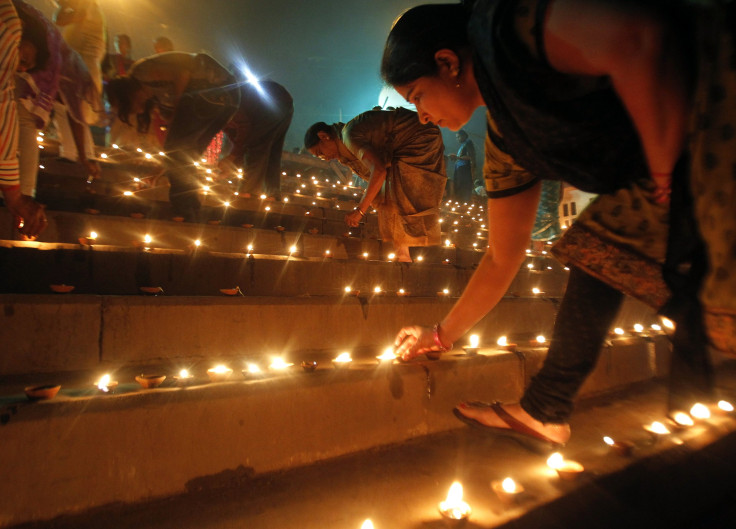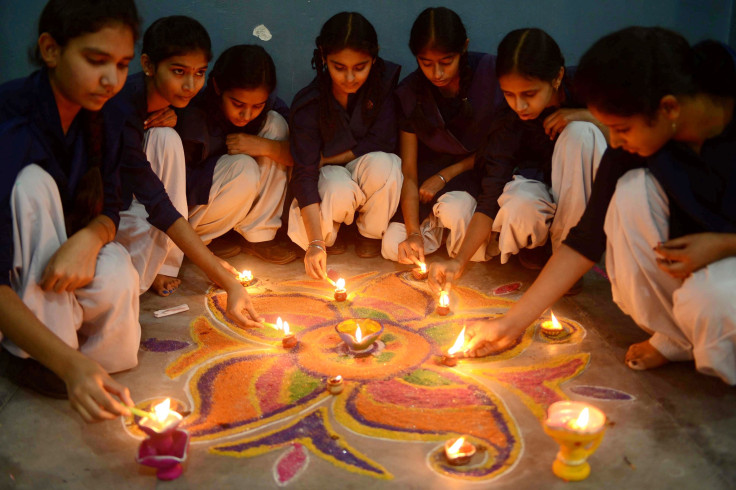Diwali 2015: What Is The Indian Festival Of Lights And How Is It Celebrated?

Diwali, also known as Deepawali, is the five-day Indian festival of lights celebrated by Hindus, Sikhs, Jains and Buddhists around the world. While the holiday is observed by people of different faiths for different reasons, they all acknowledge its underlying theme: the victory of good over evil and the triumph of light over darkness. Diwali gets its name from a combination of the Sanskirt words for "light" and "row," as many Indians use rows of clay lamps to decorate their homes and temples.
When is Diwali?
This year, Diwali starts on Wednesday, Nov. 11, and ends the following Sunday. The festival occurs in October or November every year, though the exact dates are determined by the Hindu lunar calendar.
What are the holiday’s origins?
Diwali started as a harvest festival that commemorated the last harvest of the year before winter began. Indians would thank and seek blessings from Lakshmi, the goddess of wealth and prosperity, as they closed out the financial year and looked ahead to the new one. Many Indians continue this tradition, marking the day after Diwali as the first day of the financial new year.
Different religious groups like Hindus and Sikhs associate Diwali with different historical events, myths and traditions, but the theme of light runs through all of them.

What does Diwali mean for different religious traditions?
According to some interpretations of Hindu tradition, Diwali marks the end of the exile period for Lord Rama, his wife, Sita, and his brother Lakshmana. Lord Rama was exiled after killing Ravana, a demon king. Other Hindus celebrate Diwali as the day Lord Krishna defeated the demon Narakasura, or the day that Lord Vishnu banished demon King Bali to the netherworld.
For Sikhs, Diwali marks the Bandi Chhor Divas, the celebration of when Guru Har Gobind escaped from the prison of the Mughal emperor Jahangir and returned to the Golden Temple in Amritsar.
Jains celebrate Diwali as a time to remember the Lord Mahavira’s attainment of Nirvana. Mahavira was the last Jain tirthankara, a person who has conquered the cycle of life and death.
Buddhists also celebrate Diwali, the day they believe the Emperor Ashoka decided to convert to Buddhism to follow a path of peace after witnessing bloodshed and death.
How do people celebrate Diwali today?
The festival is widely celebrated in India and Nepal, as well as in other countries where practitioners of the four religions reside. People clean and decorate their homes with oil lamps and strings of lights, light fireworks, give each other gifts and sweets and construct elaborate rangolis, a type of folk art created on the floor with colored sand, rice or flower petals. Some open their doors and windows and light lamps as a way to invite the goddess Lakshmi in the hopes that she is wandering the earth looking for homes to welcome her.
© Copyright IBTimes 2024. All rights reserved.





















